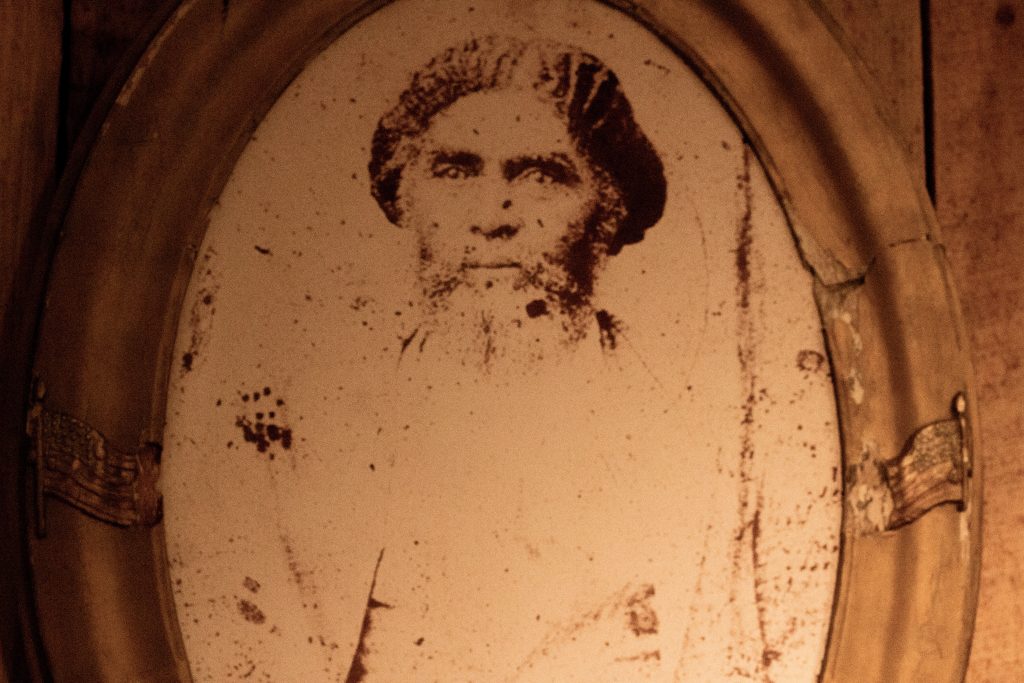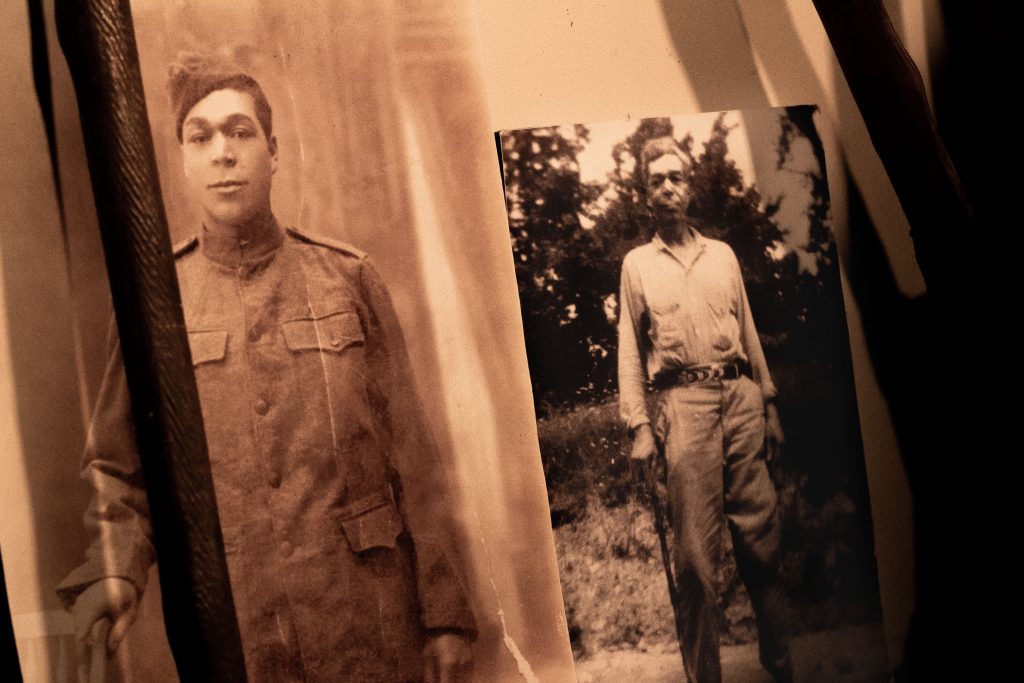
David Butcher Preserves Legacy of Appalachian Diversity in Tablertown
Inside a small building disguised as an earth-toned, metal pole barn is an overflowing archive of David Butcher’s ancestors: the founders of Tabler Town.
Butcher calls the exhibit at his home, “People of Color.” His grandmother, Elise, inspired Butcher to begin his collection of artifacts as a young boy. Once, in middle school, he divulged to her that he found Black history depressing—that all he ever heard was his people were slaves. In response, Elise gave David a photo of his great-great-grandfather, a Civil War veteran.
“I said, ‘wow’,” Butcher laughs at the memory. “They sure didn’t tell me about this in school!”
Some 40 years later, Butcher is devoted to preserving his ancestry and the history of Tabler Town, a Black-founded town, circa 1830.
Michael Tabler, enslaver and paternal genesis of the Tabler family, originally lived in what was Virginia (now West Virginia) where he owned his wife, Hannah, and six children. When Tabler realized his mixed-race children would have a hard time claiming their inheritance, he moved the family to Ohio. He bought each of them their freedom, emancipated them, and gave each their own plot of farmland two miles away from Stewart. He freed his children and lived with them for 13 years until his death in 1843.

Today, maps call the village Kilvert, but locals still call it Tabler Town.
“If we don’t tell the story, it will be lost,” Butcher says. “My goal is to try to preserve [our culture]. Whether it’s passing it on by telling the younger generations, or with a photo or an artifact; the goal is to try to keep it alive as long as we can.”
WAYS OF BEING
Zakes Mda, South African novelist, poet and playwright, became intrigued by Kilvert when he was an English professor at Ohio University (Athens). His award-winning novel, Cion, set in rural Ohio, concerns the descendants of white, Black and Native Americans who met and had children during the time of the Underground Railroad.
“I fell in love with their heritage there, of which they are very proud,” Mda says. “It was important to tell that story. It was the heritage and the fact they identified very strongly with their history.”
This story of Black success in the 1800s reshapes the history of American heritage and Blackness. Tabler Town is an account of Black enterprise, generational assets and the resourceful spirit of Appalachian culture.

“Black is not just one Black experience; there are many different ways of being Black, and many traditions even within these Black cultures,” Mda says.
THOUSAND OF STORIES
“I could tell you thousands of stories,” Butcher says inside his museum as he gestures to a weathered, brass ring inside a small, transparent box.
The ring belonged to Elsie; it was her grandfather’s, Jerry Sims, born 1822, a Civil War solider. Butcher’s father-in-law found it with a metal detector in the back of his property.
The Butchers have a long history of preserving their patriotism. Elias Butcher, whose wooden leg now rests in his great-nephew’s museum, served in World War I.
“You really have to think differently now about our early pioneers,” Butcher says.
MY HOME IS STILL HERE
In 1937, a tornado—locals called it a “cyclone” because it carried water—destroyed most of the town. Four residents were killed and even more were forced to move to neighboring towns, like Athens and Cutler, to repair their lives. Church of God, the two-room church of Tabler, took nine years to rebuild.
My goal is to try to preserve [our culture]. Whether it’s passing it on by telling the younger generations, or with a photo or an artifact; the goal is to try to keep it alive as long as we can.
David Butcher
Around 40 people live in Tabler Town today. Sandra Tabler Smith, Butcher’s second cousin, lives about 50 miles away but still comes back for church and community events.
“I just like being here,” Smith says. “My home is still here. My parent’s house is the one here up on the corner.”

Butcher lives in nearby Stewart with his wife. In the future, he hopes to digitize the archive to make the exhibit more accessible to people. He is funded entirely through the donations of visitors, reunited family members and supporters.
“If we are to survive as the people, we have a great history—but you have to be able to produce something and put something in someone’s hands when they visit, so—yep, that’s my goal,” Butcher says with a promising smile.